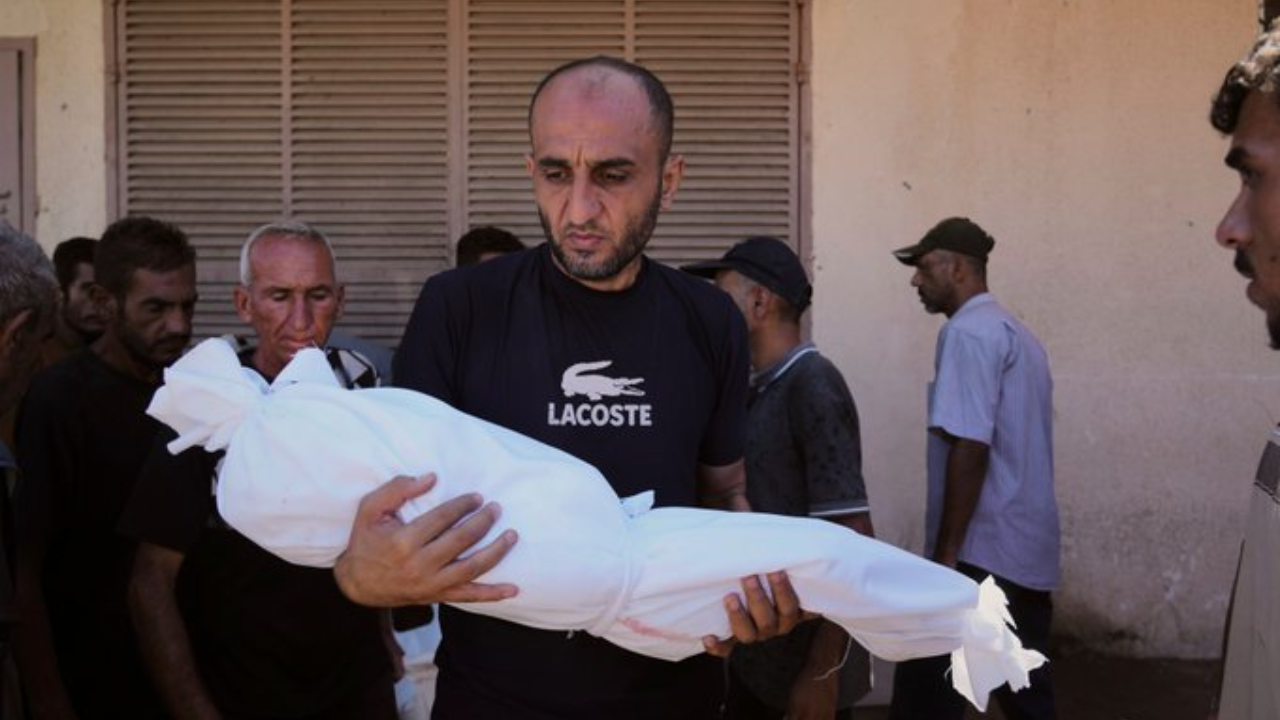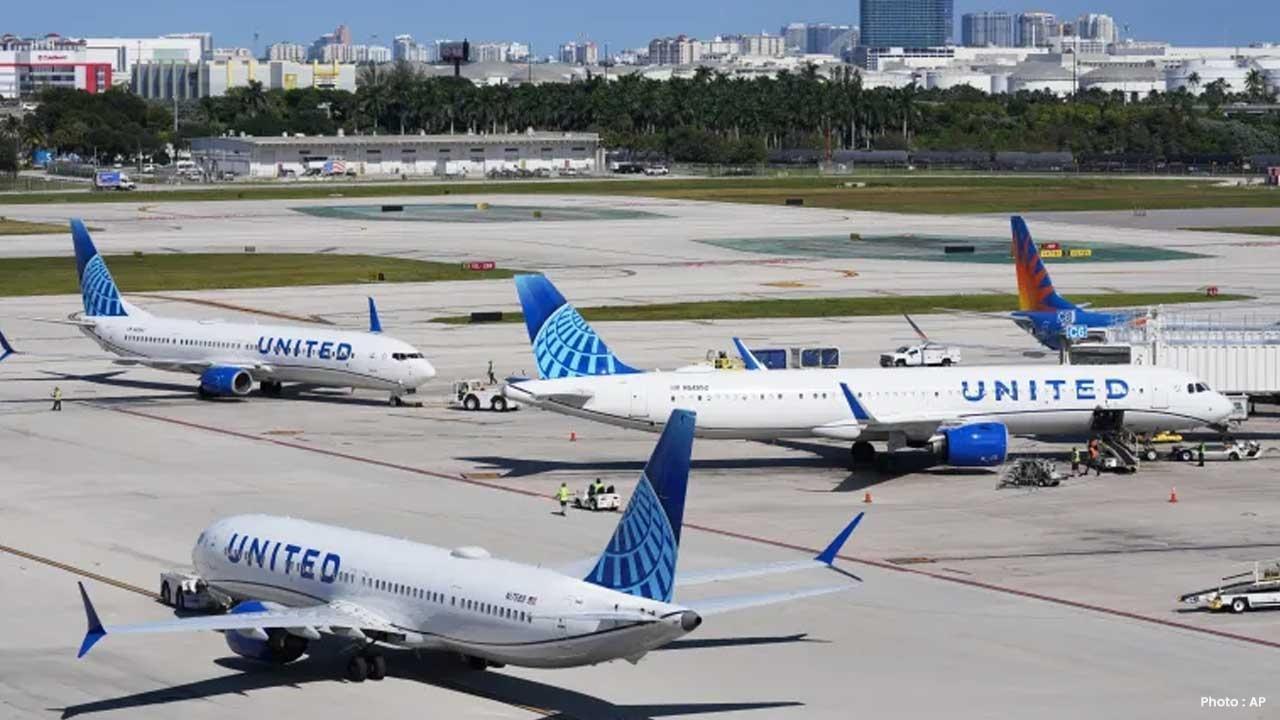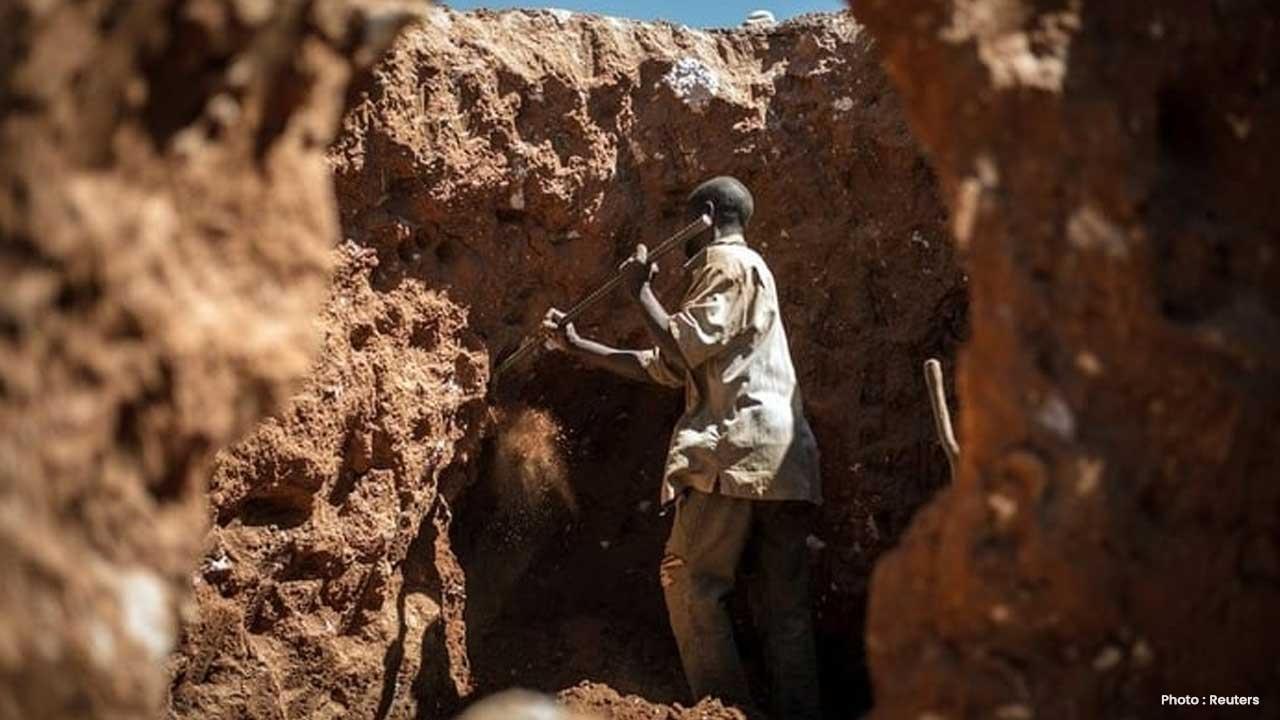
Post by : Naveen Mittal
To commit genocide, a society must first strip another group of its humanity. Experts say this is what Israel has done to Palestinians for decades, and it is why the mass killing in Gaza has become possible today.
Genocide is the attempt to wipe out an entire people. It is not just a battle against fighters but the destruction of homes, schools, and communities, leaving no safe future. International experts say what is happening in Gaza today fits this definition.
Navi Pillay, a former international judge, explained that genocide always begins with dehumanisation. In Rwanda in 1994, victims were called “animals” before they were killed. She warns that the same process can be clearly seen in Gaza.
Gaza City is under constant attack. Thousands of civilians remain there, suffering famine and bombings. The clear aim seems to be forcing people out so the city can be flattened and presented as a victory against Hamas.
Israeli officials speak of this destruction without shame. One minister bragged that “Gaza is burning,” even as UNICEF described Gaza City as the last safe place for families in the north.
Inside Israel, most public protests are not against the mass killings but about the return of Israeli captives. A poll found that 76% of Jewish Israelis believe no one in Gaza is innocent — showing how normal it has become to see Palestinians as undeserving of life.
The attack on October 7, 2023, shocked Israel when more than 1,100 people were killed. But experts say the reaction showed how little awareness Israelis had of the occupation and daily suffering of Palestinians.
For decades, human rights groups have documented expulsions, land theft, and policies aimed at keeping Palestinians under control. This began in 1948 with the Nakba — when hundreds of thousands of Palestinians were driven from their homes.
In Israel, most Jewish citizens grow up without meeting Palestinians. Schools do not teach their history, culture, or even their language. When Palestinians inside Israel call themselves Palestinians, it is treated as shocking or even threatening.
This separation makes it easier to see them as outsiders and less human.
Dehumanisation has been spread through education, politics, and culture. Studies of Israeli children’s books in the 1980s showed Palestinians drawn as snakes, wolves, or monsters. Later research found Israeli schoolchildren often drew Palestinians as animals. Many of those children now serve in the army in Gaza.
After 2005, when Israel removed settlers from Gaza, religious hardliners worked to take control of schools, media, and government. Their goal was to make their extreme views about Palestinians mainstream.
Today, this influence is visible. Even senior military leaders openly suggest killing Palestinians in huge numbers, including children, as punishment for resistance.
The roots of this mindset go back even further, before Israel was created. British officials once described Palestine as “a land without a people.” This false belief carried into Zionist ideology, which treated Palestinians as temporary or invisible.
Today, it is common to hear people in Israel ask why the expulsion of Palestinians was not “finished” in 1948 or 1967. For many, the ongoing displacement of Palestinians is seen as natural and inevitable.
Since the latest war began, more than 64,900 Palestinians have been killed. Families have lost homes, schools, hospitals, and entire neighborhoods. Hunger is spreading as aid is blocked. Yet many Israeli voices dismiss this suffering as either necessary or deserved.
This shows how deeply dehumanisation has shaped Israeli society. When one people is seen as less than human, their mass killing can be accepted or even celebrated.
Genocide does not happen suddenly. It requires years of teaching, separating, and portraying another group as inferior. For decades, Palestinians have been dehumanised in Israel’s schools, politics, and media. Today, Gaza bears the full weight of that process.
The lesson from history is clear: when a society strips others of their humanity, the path to genocide opens. To stop such crimes, the first step is restoring the recognition that every human life holds equal value.










Curacao, Haiti, and Suriname's Quest for World Cup Glory
Curacao, Haiti, and Suriname aim for a historic World Cup spot as Concacaf qualifiers reach their th

Oscar Discharged from Hospital After Cardiac Scare
Former Chelsea star Oscar is out of the hospital following heart issues; Sao Paulo affirms his stabi

Tributes Pour in for Paige Greco, the 28-Year-Old Paralympic Star
Paige Greco, a gold medallist from the Tokyo 2020 Paralympics, tragically passed away at 28, leaving

Eagles Secure 16-9 Triumph Over Lions with Late First-Half Touchdown
The Philadelphia Eagles captured a 16-9 win against the Detroit Lions, thanks to Jalen Hurts' pivota

Baltimore Ravens Triumph with Andrews' Game-Sealing Touchdown
Mark Andrews' stunning 35-yard touchdown run in the fourth quarter propelled the Ravens past the Bro

Purdy’s Stellar Comeback Powers 49ers Past Cardinals
Brock Purdy shines in his return, guiding the 49ers to a decisive 41-22 win over the Cardinals with